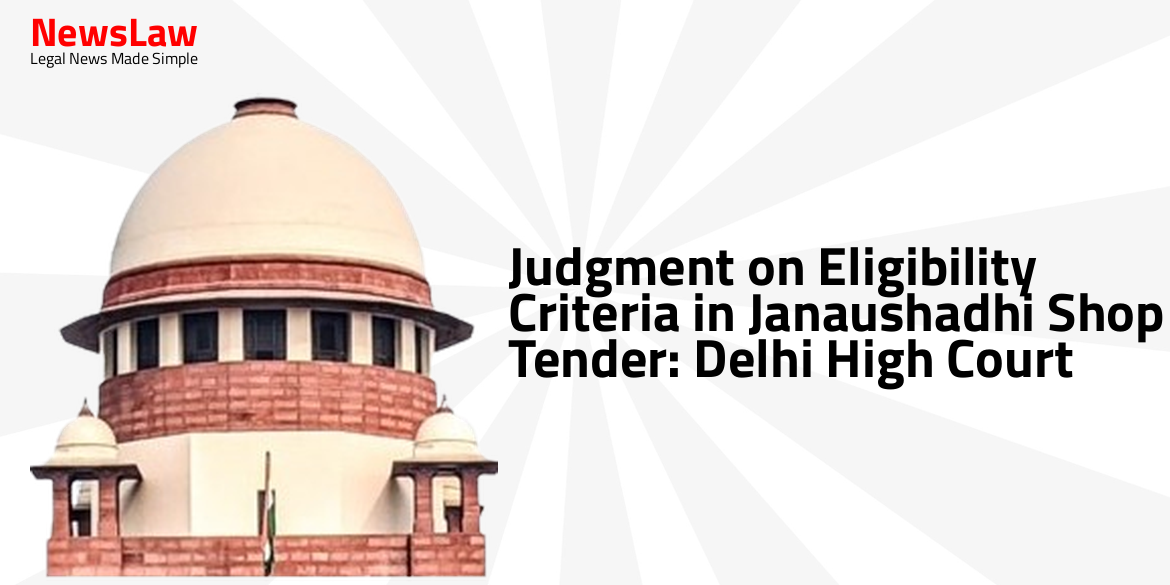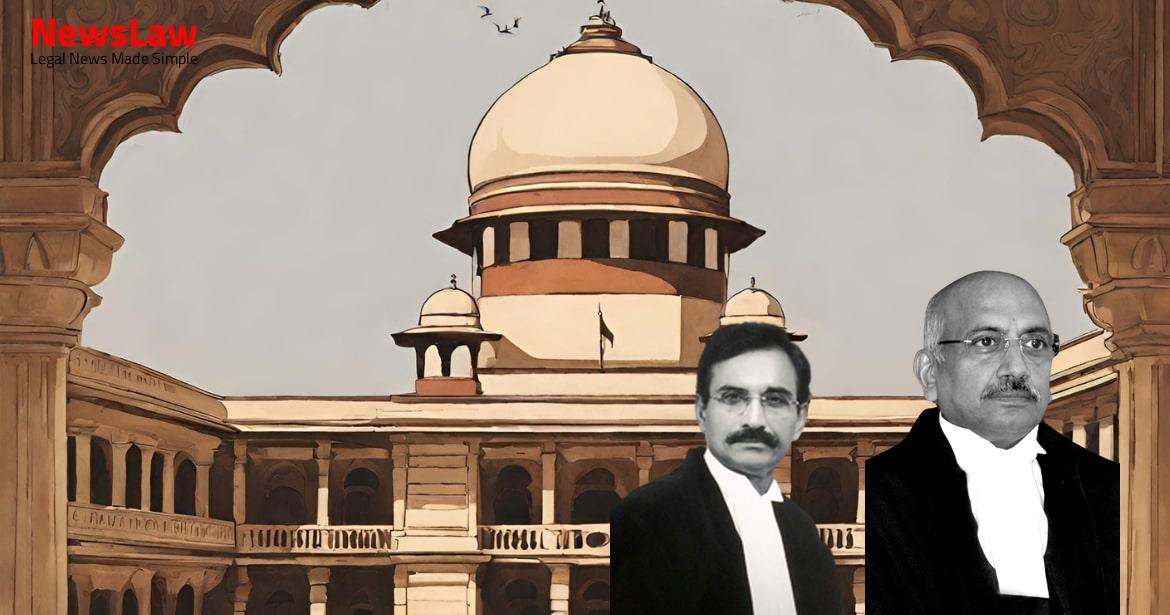In a recent ruling by the Delhi High Court, the judgment regarding the eligibility criteria in the Janaushadhi Shop tender has been pronounced. The case involved a challenge to the criteria specified in the tender notice, particularly focusing on conditions related to turnover and prior experience. The judgment delves into the intricacies of the tender process, evaluating the validity and rationality of the criteria set by the authorities. Stay informed about the implications of this crucial decision by the Delhi High Court.
Facts
- The petition has been filed seeking the quashing of the auction notice dated 25 April, 2024, for the establishment of a ‘Janaushadhi Shop’ at Safdarjung Hospital.
- The petitioner is aggrieved by the eligibility and technical criteria specified in the NIT, particularly challenging condition nos. 2 (ii) and 2 (iv).
- The petition requests a direction for issuing fresh terms and conditions that are not deemed arbitrary and irrational.
- The last date for bid submission was 07 May, 2024, and the assessment of bids is set to conclude on 10 May, 2024.
Arguments
- The petitioner argues that the condition of prior experience in operating PMBJK creates a monopoly and narrows the bidder pool, limiting competition.
- They point out that awarding higher marks based on turnover excessively favors bigger players, excluding smaller players like the petitioner.
- The petitioner highlights specific instances of turnover criteria in similar tenders for PMBJK in other locations to emphasize the arbitrary nature of the turnover requirement.
- The petitioner contests the necessity of high turnover for quality service provision and argues that it unfairly disadvantages smaller players.
- The respondent justifies the turnover criteria by citing the high sales volume in existing PMBJK shops at hospitals.
- The petitioner challenges the experience criteria, emphasizing the need for six years of pharmaceutical business experience and at least one year of recent PMBJK operation experience as excessive.
- The respondent argues that the prescription of criteria of one-year experience in operating a PMBJK is meant to enhance the quality of services at the Janaushadhi shop.
- This criteria is aimed at ensuring that individuals managing the Janaushadhi shops have sufficient expertise in handling operations.
- The requirement of experience is seen as a measure to improve the overall quality of services provided through the Pradhan Mantri Bhartiya Janaushadhi Kendra scheme.
- The respondent emphasizes that this criterion is essential for maintaining the standards and efficiency of the PMBJKs.
Analysis
- The Petitioner has no stake in the process and filed the petition late, questioning their motives.
- The technical bid evaluation concluded on 10 May, 2024, making the timing of the petition suspect.
- Courts generally do not interfere in tender processes unless shown to be arbitrary or unreasonable.
- The Petitioner challenges the eligibility criteria and weightage of turnover in the tender.
- The delay in approaching the court is noted and impacts the validity of the petition.
- The turnover criterion of Rs. 20 crores was set to ensure financial stability and competence.
- The decision to deal with one firm for the project was a policy choice by the Government.
- Criteria such as turnover were designed to select capable bidders for the substantial project cost.
- The court’s role is limited to intervening if tender terms are proven to be arbitrary or discriminatory.
- The criterion of a minimum turnover was considered reasonable in the context of the project’s scale.
- Actions of the State must be valid and based on discernible reasons, not arbitrary or for ulterior purposes.
- Fairness and non-arbitrariness are key aspects of Article 14.
- Limited judicial review when State acts in conformity with healthy standards like tendering processes.
- Greater latitude given to State authorities in formulating tender conditions and awarding contracts, unless malicious or a misuse of power is evident.
- Preconditions for tenders are necessary to ensure contractors have the capacity and resources to execute the work successfully.
- State actions in awarding contracts must be reasonable, fair, and in the public interest for limited court interference.
- The decision of the tendering authority to prefer a bidder with higher turnover is a reasonable one.
- Higher net worth may indicate enhanced managerial capacity to deal with a shop with high turnover.
- The Court cannot interfere with the authority’s decision to choose an efficient bidder for managing a shop in a major hospital.
- The turnover-based criteria with graded marking is justified based on the existing data of the shop’s monthly turnover.
Decision
- The petition along with pending applications was dismissed.
- No merit was found in the present petition.
Case Title: MEDIFIRM PHARMACY LLP Vs. UNION OF INDIA & ORS. (2024:DHC:3868-DB)
Case Number: W.P.(C)-6733/2024



